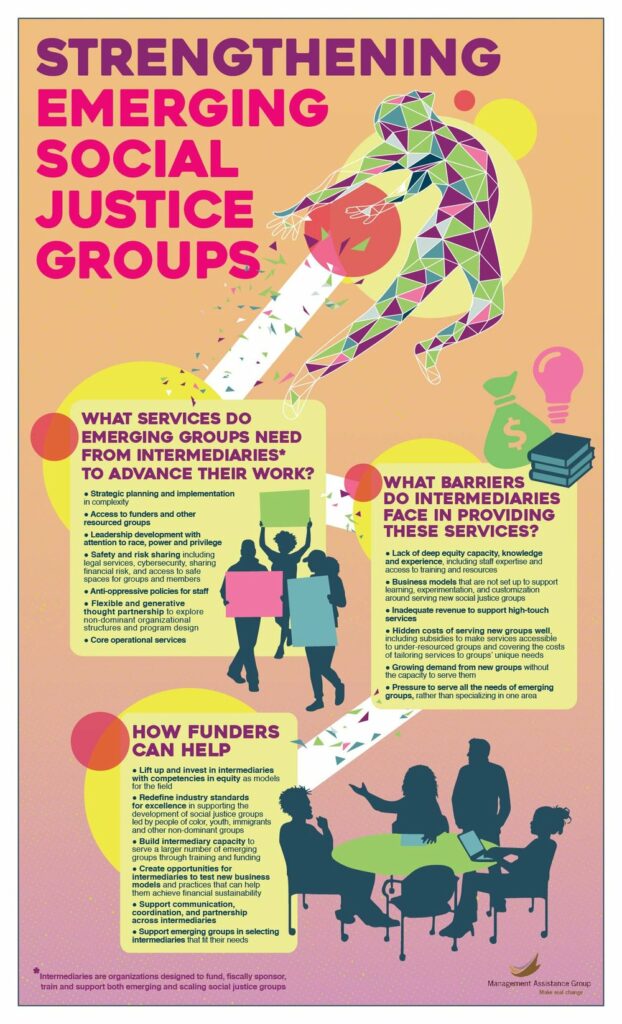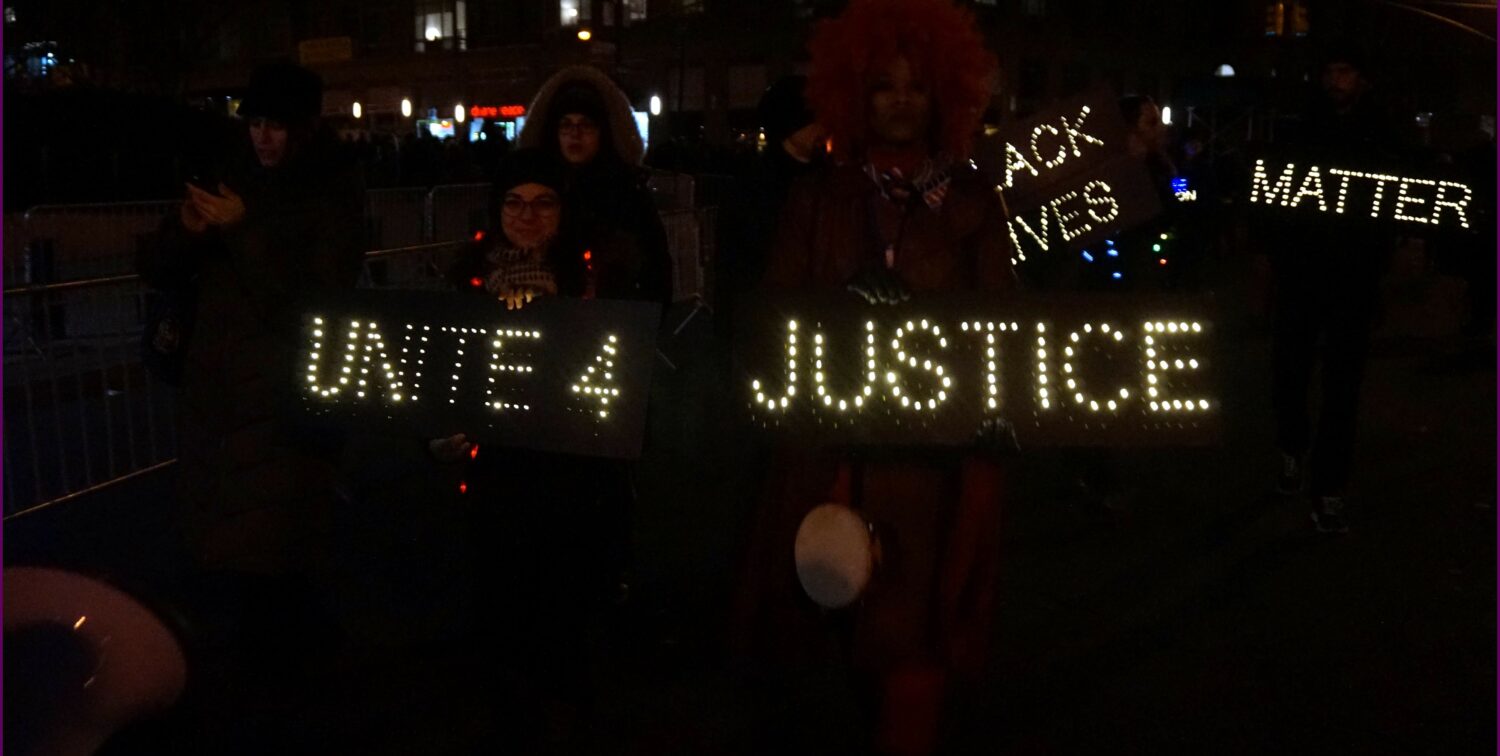Every day, new social justice groups emerge led by youth, people of color, members of the LGBTQI community, immigrants and other groups outside of traditional spheres of power. They are bringing their leadership and much-needed vision to address long-existing struggles for equity in their communities.
Supporting these emerging groups – and integral to their important work – are intermediaries. Rather than becoming an independent nonprofit immediately, many new groups choose to be incubated by a separate 501c3 – or intermediary – such as a grantmaker or fiscal sponsor. These intermediaries often support a new group’s capacity to legally secure grant funding, develop strategy, and/or manage key back-office functions needed to do their work well. In providing these supports, intermediaries help create flexibility and extra capacity for emerging groups to refine and implement their strategy, and test various organizational structures, with support from a more established organization.
Because of the significant role intermediaries often play in the development, sustainability, and impact of social justice groups, MAG partnered with the Ford Foundation to better understand how philanthropy might support intermediaries in providing high quality services to sponsored groups.
Through surveys and interviews with social justice groups and the intermediaries that support them, we sought to answer the following questions:
What are the unique needs of emerging social justice groups led by and serving immigrants, people of color, youth, LGBTQI and other communities outside traditional spheres of power?
To what extent are intermediaries meeting these needs?
What barriers do intermediaries face in serving more groups and in serving them well?
What steps can national funders of intermediaries take to build intermediary capacity so that they can fully meet the needs of emerging social justice groups?
There are two things that stood out to us as consistent themes in our conversations with intermediaries and emerging groups:
Serving emerging social justice groups well requires an intermediary’s understanding of and capacity in deep equity.
The work of supporting emerging groups with an equity lens is resource intensive and no single intermediary has found a business model that enables them to offer equity-centered services at scale.
The infographic pictured summarizes our full findings.

We hope this research about the needs of intermediaries and the groups they serve can be a learning tool and stepping stone for future collaboration between funders and intermediaries to strengthen the field. At MAG, we are continuing to explore what it might take for intermediaries to serve social justice groups at scale and with depth in equity.
With thanks to Design Action Collective for creating this infographic.





